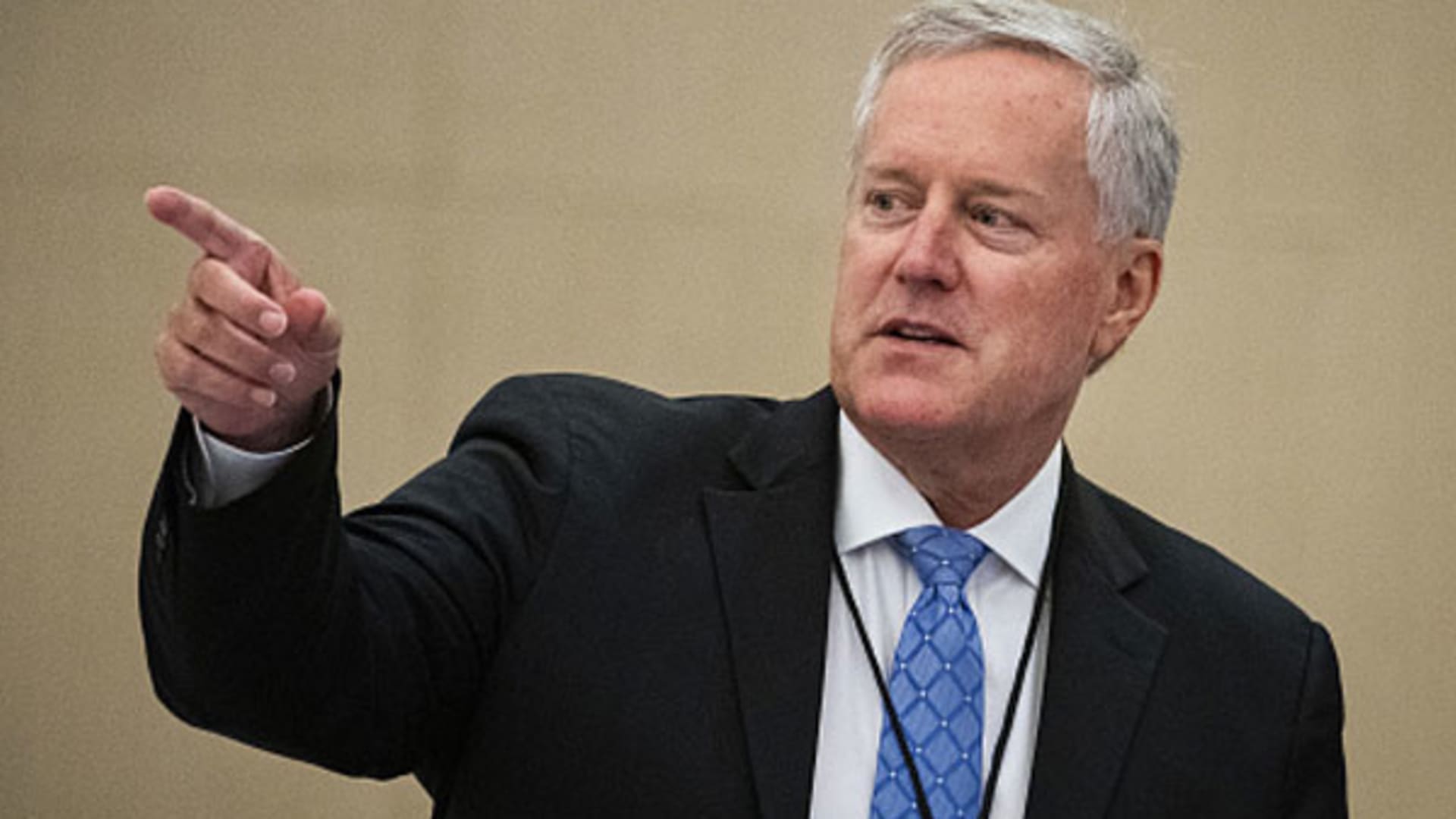Former Trump White House chief of staff Mark Meadows asked a South Carolina judge to block a subpoena demanding his testimony before a Georgia grand jury investigating possible criminal interference in the 2020 presidential election.
Meadows’ request Monday afternoon came hours after U.S. Supreme Court Justice Clarence Thomas temporarily delayed a similar subpoena that the same grand jury issued to Sen. Lindsey Graham, R-S.C.
The grand jury is probing former President Donald Trump and others for possible crimes related to efforts to get Georgia election officials to effectively reverse President Joe Biden‘s victory in the state’s 2020 race.
Meadows was on the phone during a January 2021 call when Trump urged Georgia Secretary of State Brad Raffensperger to “find” Trump enough votes to win the state.
A spokesman for the district attorney’s office in Georgia’s Fulton County, which is overseeing evidence presented to the grand jury, said a prosecutor from that office will address Meadows’ effort during a hearing Wednesday in Pickens County court in South Carolina.
Meadows, a former Republican congressman, resides in South Carolina. Georgia authorities had to file a petition in South Carolina’s Court of Common Pleas seeking to compel him to go to Atlanta to comply with the subpoena.
In a filing Monday in the court’s Thirteenth Judicial Circuit, Meadows’ lawyer James Bannister opposed that petition for several reasons.
Bannister said the subpoena was moot because it had required Meadows’ appearance before the grand jury on Sept. 27.
However, a Fulton County prosecutor said a “scheduling conflict” delayed Meadows’ testimony date, according to an affidavit filed Tuesday. Prosecutors suggested rescheduling the appearance until Nov. 9, 15 or 30.
Bannister also wrote that South Carolina law related to securing the attendance of witnesses for another state in a criminal proceeding “does not apply to a subpoena” like the one issued for Meadows under a Georgia civil statute.
The grand jury in this case does not have the power to criminally charge individuals but can recommend charges.
Bannister also wrote that Meadows is not a “material witness” under South Carolina law because in a pending federal court case, he asserted the claim of executive privilege in arguing he should not be compelled to testify to the select House committee investigating the Jan. 6, 2021, Capitol riot by Trump supporters.
The lawyer also wrote that Meadows “reserves the right to present further information necessary to a just determination of the issues before the court.”
Bannister did not immediately respond to requests for comment.
A spokesman for Fulton County District Attorney Fani Willis declined to comment.
The Trump ally Graham last week lost a bid at the federal 11th Circuit Court of Appeals to temporarily block his own subpoena from the grand jury, which had ordered him to appear to testify on Nov. 17.
On Friday, Graham asked Thomas to delay execution of the subpoena as he awaits the outcome of his appeal of its legality.
Thomas, who has authority over emergency applications from the 11th Circuit, granted the request Monday. The order delaying the subpoena is not a final ruling on its legality.
Graham has argued that he should not be compelled to testify at the grand jury because it would violate the Constitution’s speech and debate clause, which protects members of Congress from legal risk from their comments related to legislative business.
A federal district court judge rejected that argument. The judge at the same time ordered that Willis’ prosecutors could not question Graham about portions of a call he made after Election Day 2020 to Raffensperger that might qualify as legislative activity.
The appeals court, in upholding the judge’s ruling, noted “there is significant dispute about whether [Graham’s] phone calls with Georgia election officials were legislative investigations at all.”
